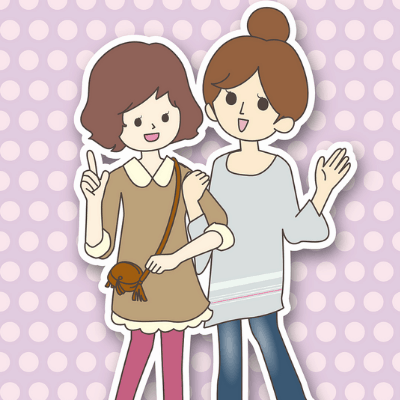
33 Effective Social Skills Activities and Games for Kids (Young Children, Teens, Autism & Group Activities)
Looking for fun social skills activities to boost your kid’s socio-emotional development?
Social skills are an important part of kids’ socio-emotional development. Every day, we use our social skills to communicate and interact in society.
Children learn about norms and acceptable behaviors through their social interaction with parents, teachers and, later in childhood, peers. There are also a number of social skills activities for kids that will help us support this learning process.
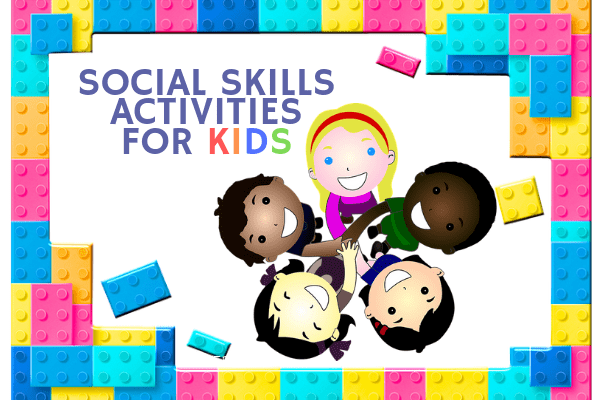
(Disclosure: We are a participant in the Amazon Services LLC Associates Program, an affiliate advertising program designed to provide a means for us to earn fees by linking to Amazon.com and affiliated sites. You can also read our Disclosure & Disclaimer policy here)
33 Social Skills Activities for Kids
The following social activities are great for fun family game nights and for classroom activities. They are also great tools to help you work with kids on their social skills.
I’ve organized them into broad categories, following this social skills checklist.
- Communicating
- Listening
- Recognizing and Expressing Emotions
- Participating
- Taking Care of Themselves & Others
- Problem-Solving
For each social skill mentioned above, you will find different activities that may help with the development of interpersonal skills.
This is the list of social skills games and activities that we will explore below (🎁 you can also download one of our suggested social skills activities at the end of the post:)
COMMUNICATION SKILLS ACTIVITIES
- Conversation Role-Playing
- Self-Introduction for Kids
- Would you Rather Questions
- Giving & Receiving Compliments
- Puppet Show
- Assertive Communication Role-Play / Worksheets
- Personal Space Circle
- Personal Space Worksheets
- Recognizing Emotions / Emotions Flashcards Games & Activities
- Emotions & Facial Expressions (Worksheets)
LISTENING SKILLS ACTIVITIES
- Continue my Story
- Guess what I’m Describing
- Whole Body Listening Worksheets
EXPRESSING AND RECOGNIZING EMOTIONS
- Drama Workshop
- A Feelings Journal
- Expressing Feelings with Emotion Cards
PARTICIPATING IN SOCIAL SITUATIONS
- Conversation Ball
- The Talking Stick
CARING AND SPEAKING UP FOR THEMSELVES
- What Makes a Good Friend (Group Activity)
- Things We Have In Common
- Showing Interest: Questions about Others
- Guess Fake or Real Apology
- Write an Apology Letter
- How Others Feel / Perspective-Taking
- A Week of Kindness
- Respect Charades (🎁 PDF download included)
PROBLEM-SOLVING IN SOCIAL SITUATIONS
- Conflict Resolution Worksheet
- Social Skills Board Game
SOCIAL SKILLS ACTIVITIES FOR AUTISTIC KIDS AND KIDS WITH DISABILITIES
- Social Skills Groups
- Social Clubs
- Playdates
- Social Stories
- Hidden Rules with Friends
Communication Skills Activities
VERBAL COMMUNICATION ACTIVITIES
Skill: Starting, maintaining, and finishing a conversation
Activity 1: Role-playing conversations
What is role-playing? It is acting out a particular person, character or situation. It is a technique used often when training new skills and in psychotherapy.
It works really well when you are training kids in social skills, as it allows them to practice a new skill in a safe environment before they expose themselves to real-life situations. Consequently, you will see it mentioned in several suggested social skills activities.
In this activity, you will be role-playing with your kids or students different everyday communication situations like:
- starting a conversation with the kid sitting next to you
- wrapping up a conversation so the kid agrees on meeting / playing again.
Just a few examples that you can use:
- Conversation starters
Give them a few lines that they can use at school:
-
- What did you do this weekend?
- What games do you play at home?
- What is your favorite food / game / place?
- Finishing / Wrapping-up a conversation
- Should we play this again sometime?
If you run out of ideas, or would like to make it a bit more fun, you can download our free printable conversation cubes (it includes 5 different topics and a blank template for you to explore any area of interest)
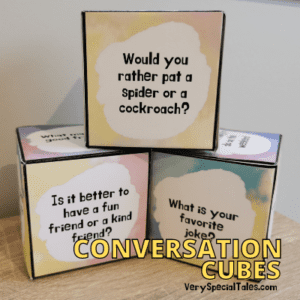
Alternatively, you can also consider these foam conversation cubes (36 engaging questions and an activity guide)
Activity 2: Role-playing self-introductions
Being able to introduce themselves is an essential skill that helps kids feel confident, and provides opportunities to make friends and meet new people.
There are many situations when children may need to introduce themselves to a group, most likely their classroom or an activity group.
Activity: Create a list of introductory questions and ask them to introduce themselves
Write a list of things for them to answer about themselves (favorite food, sport, names of their friends, how old they are). They can write down or draw depending on their age / writing ability
Related Reading: Self-Introduction Activities and Worksheets for Kids
Activity 3: Would you rather
“Would you rather” is a fun conversation game that offers a choice between two answers.
This games is so fun that even a quiet child can turn into a chatterbox.
Do you need some ideas? -> Check out our 114 Would you Rather questions for kids
Skill: Giving and receiving compliments
Activity 4: Role-playing giving and receiving compliments
In groups of two, each kid takes a turn saying something nice to the other person (e.g. I like your t-shirt, You did great today at maths), and the child that receives the compliment responds “Thank you very much”.
Activity 5: Puppet show
This is just a variation of a role-playing situation. You may use the puppet show idea for any of the previous social situations that we have mentioned (conversation starters, giving and receiving compliments).
Just as an example. I sometimes use my kid’s favorite soft toys (Puppy Dog Pals) and represent conversations in which Bingo is having problems controlling his emotions and Rolly helps him through some of the calming strategies that we use at home.
Activity 6: Communicating Assertively
Assertiveness is an important communication skill that will improve your child’s social interactions and low self-esteem.
Assertive communication is not just about what we say. Nonverbal communication is just as important: making eye contact, keeping calm while speaking, and using a confident tone of voice.
Role-play how to communicate assertively in real-life situations. These assertive communication worksheets include tips and examples of assertive communication.
⇒ More info on assertive communication for kids
⇒ Other assertive communication resources: I-statements examples
NON-VERBAL COMMUNICATION SKILLS
Skill: Respecting personal space
Activity 7: The personal space circle
Draw a circle on a big sheet of paper. The inner circle will be the intimate space (1.5 feet radius), surrounded by personal space (4 feet radius) and the area outside will be the social space.
Put that paper on the floor. Take turns to role play conversations where kids speak to each other without trespassing in their personal spaces. (You may also use a string to create the circle or a hula hoop)
Activity 8: Personal space activities (worksheets)
This activity features personal space worksheets designed to help kids understand and respect boundaries in social interactions. It includes:
- Social Story (Social Narrative) (two versions, with illustrations and a blank option)
- 20 Gorgeous Discussion Cards (two versions, with and without illustrations)
- 15 Role-Play Situations (two versions, list and cards)
- My Personal Space Worksheet (Friends vs. Strangers)
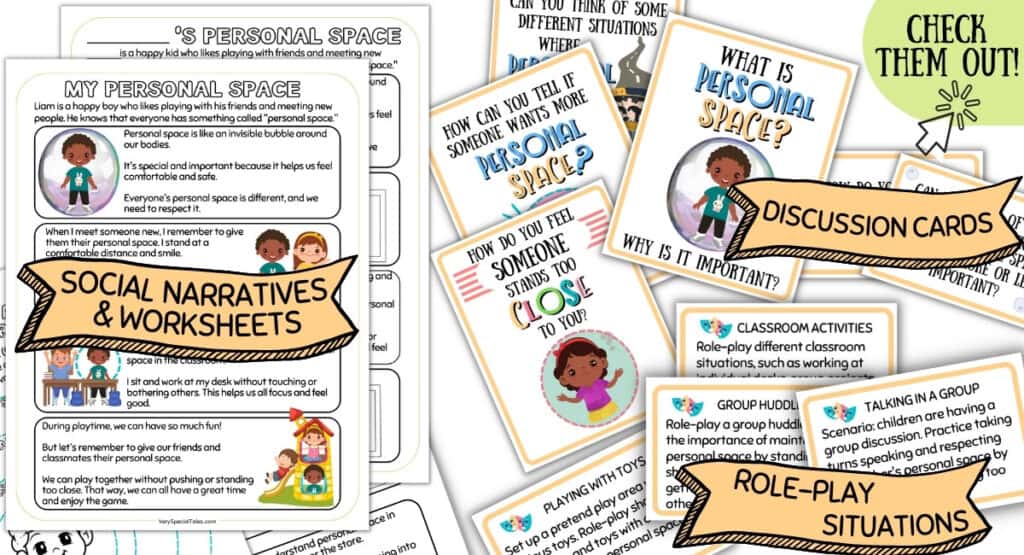
NON-VERBAL COMMUNICATION & EMOTIONS /FEELINGS
Skill: Learning about facial expressions and body language
Activity 9: Identifying facial expression and body language in Emotion Cards
You can use emotion cards to work on emotion recognition.
This is a set emotions flashcards with of 24 emotion labels and definitions. It also comes with useful suggestions on how to use them.
Activity 10: Emotions & Facial Expressions Workbook
This Emotions & Facial Expressions workbook can be a great activity for younger kids, too (we developed this one ❤️)
Listening Skills Activities
Skill: Listening with complete attention
Activity 11: Continue my story
We love storytelling at home. I make up new stories every single day for my child.
Stories can also be used for a fun activity that involves listening attentively.
One person in the group starts a story, and at some point of time stops and chooses who will continue the plot. The next person will take the story from there and will pass it to another one in due course.
Everybody needs to listen with full attention because they don’t know when their turn will come up.
Activity 12: Guess what I’m describing
Choose something that you will describe, for example, a lion. Then, share clues, one at a time, till somebody guesses what you are describing
“It is an animal / It has four legs / It lives in the wild / etc.”
Activity 13: Whole Body Listening Worksheets
“Whole Body Listening”, developed by Susanne Marie Poulette, is one of the most popular tools to teach younger kids active listening.
You can download this social development tool from this post: Listening Games and Activities for Kids (18 ideas!)
Expressing and Recognizing Emotions / Feelings
Skill: Expressing and recognizing feelings
Activity 14: Drama workshop.
Write down different emotions on slips of paper and put them in a bag. Taking turns each of you will take a slip of paper and role-play the emotion written on it.
The person role-playing practices the skill of expressing feelings
The people guessing are practicing emotion recognition.
Activity 15: Keeping a feelings journal
Some kids may find expressing their feelings a bit difficult. A good way to get comfortable reflecting about feeling could be writing a feelings journal. This one is a great one for girls. And this one could be a nice guided journal for teens, with prompts and fun design.
Skill: Expressing feelings
Activity 16: Emotion cards and real-life situations
With a set of cards portraying different situations, take turns to explain how would do you feel when you are in that specific situation.
These ones here are great.
The set includes 80 cards. Half of them are faces on white background (different ages, genders, and ethnicities) showing five different emotions (happy, sad, angry, disgusted and scared). The other 40 cards are real-life emotion-provoking situations. It also includes an activities booklet that provides instructions and ideas on how to build emotional awareness and social skills.
Tip: This option is a good idea if you want to work on different facial expressions on real people (the ones I mentioned in activity 7 are illustrations)
Participating (Social Skills Activity)
The beauty of this skill is that it can be practiced with any game you have at home. But just to give you another idea:
Activity 17: Answer the question when you get the ball
Conversation balls are great tools to help kids know about each other.
These balls have printed conversations prompts. There are several ways to play with them. You usually toss the ball and check under your thumb the question you need to answer.
You can also choose one of the questions and toss the ball around so that the kids wait for their turn to answer that question.
Conversation balls encourage the use of interpersonal skills (taking turns, eye contact, listening, responding).
Activity 18: The Talking Stick
The turn-taking stick (or talking stick) is literally just a little stick decorated in a cute way. Only the student holding the stick is able to talk. After they have spoken they can pass the stick to another student
Related Reading: 25 Fun Turn-Taking Activities for Kids
Caring / Speaking Up for Themselves
Skill: Making friends
Group Activity 19: Brainstorming what makes a good friend
Some ideas to mention: kind, helpful, talk nicely to people, don’t exclude others, don’t say ugly things about others.
Activity 20: Things We Have In Common
This friendship activity is a great activity for breaking down barriers.
Kids are organized in small groups, ideally with a mix of kids that they aren’t already all friends. The group has to find a certain number of things that they all have in common.
Kids not only learn a lot about each other but become aware of how many things they may have in common with kids from different social groups.
Skill: Showing interest in others
Activity 21: Ask questions about the other person.
Organize the kids in pairs, and ask them to take turns asking questions about each other.
If the kids run out of ideas you can use conversation cards like these ones (120 questions divided into three kids’ theme topics)
Skill: Learning to Say I’m Sorry
Group Activity 22: Guess Fake or Real Apology
Play a guessing game where they need to figure out if an apology is real or fake.
Present different scenarios where an apology is necessary. Have the kids come up with various real and fake apologies.
Then, go in a circle and have them read their apologies for lots of laughs. Each time a kid reads an apology, the others need to guess if it was real or not, and what gave them the clues.
Activity 23: Write an Apology Letter
An apology letter allows your kid to put their feelings in writing and reflect on their actions and how they affect others.
Related Reading: Teaching Kids to Apologize (worksheets included)
Skill: Teach Empathy
Activity 24: Help kids take other people’s perspectives.
Perspective-taking activities may be quite enlightening and help them reflect on how others feel about a situation.
Select a set of situations your kids or students may encounter:
- Joe makes a joke about how Tim’s hair looks. What is Tim thinking? How is Tim feeling?
- Anna invites Emma and Lilly for a playdate but leaves out Kathy. Why do you think Anna left Kathy out. How did Kathy feel?
Related Reading: 21 Perspective-Taking Activities for Kids
Activity 25: A Week of Kindness
Create a kindness challenge. Choose a kindness activity to complete each day of the week.
Related Reading: 23 Fun Empathy Activities for Kids
Skill: Showing Respect
Activity 26: Respect Charades (PDF Download available)
Write down different examples of respectful behaviors on slips of paper and put them in a bowl. Students take turns drawing a slip of paper and acting out the behavior while others guess what it is. (!Be sure to download this fun social skill group activity at the end of this post)
Problem-Solving Activities
Skill: Problem Solving in Social / Group Context
Activity 27: Conflict Resolution Worksheet (Conflict-Handling Modes)
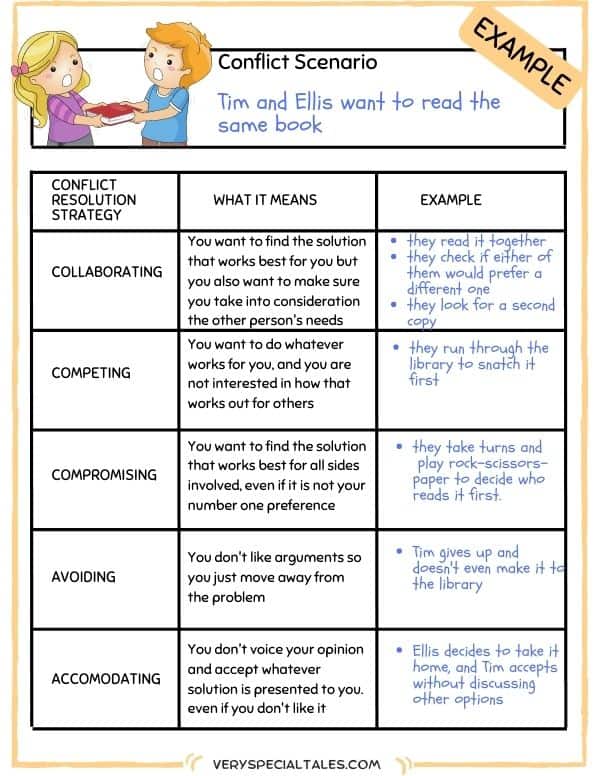
This conflict resolution worksheet will enable work on the different conflict-handling modes:
- collaborating
- competing
- compromising
- avoiding
- accommodating.
Identify a conflict scenario, and ask your students to write examples for each conflict resolution strategy.
You can download this worksheet from the following article:
Activity 28: Social Skills Board Games
Board games are a fun way to learn important social skills in a safe space with a small group of peers or with family members.
So, let’s add an example of a social skills board game to our list:
- Social Skills Group Activities (6 Board Games)
The games target: morals, good manners, empathy, friendship, and emotional skills (showing emotions and managing emotions)
Related Reading:
Social Skills Activities for Autistic Kids / Kids with Disabilities
One of the diagnostic criteria in Autism Spectrum Disorder is persistent deficits in social communication and social interaction across multiple contexts:
- Deficits in social-emotional reciprocity
- Deficits in nonverbal communicative behaviors used for social interaction
- Deficits in developing, maintaining, and understanding relationships
Autistic kids, kids with ADHD, and those with certain disabilities may experience unique challenges in developing social skills and understanding social cues.
Since social skills deficits often accompany these diagnoses, helping our kids with autism develop these skills is an important part of our work as parents, educators, and health professionals.
Apart from the activities that you have already gone through, you may also consider helping your kid with the following activities:
Activity 29: Joining a Social Skills Group run by professional therapists
Check out if this type of activity is available in your community. We were really happy to discover that this was an actual possibility for us.
Activity 30: Joining a Social Club for Kids with Autism
Activity 31: Organize Play Dates at Home (guided play if your kid needs help in social interactions)
Activity 32: Social stories
Social stories, social scripts, or social narratives are short descriptions of a situation or event that also indicate the expected social behavior.
These stories assist kids who struggle with reading social cues (body language, voice tone, facial expression) or with understanding commonly accepted social rules.
Any social situation can be transformed into a social narrative.
An example of a social story (the stories often include visuals to help understand / reinforce the message) :
Paying at the supermarket checkout
- First, I put all the items in my list in my supermarket trolley. Then I go to the check-out.
- I place my items on the counter and the cashier scans them and puts them in my grocery bags.
- The cashier tells my how much I need to pay and I use my credit card to pay for my shopping
Activity 33: Hidden Rules with Friends
We have used this card game with my son, but we don’t play it following the game’s suggested rules. My son loves us to explore and untangle whatever social problem the card presents:
- What do you do if a friend invites you over for lunch and you don’t like the veggies?
- What happens if you burp in public?
Tip: some people find the designs in these cards too simple. It has many blank cards to fill with other social situations that I don’t use. For us, they work as flashcards to explore social challenges in everyday situations.
If you are looking for lots of activities ideas, make sure you check this book below:
Social Skills Handbook for Autism ( 50 fun and simple games and activities help the child on the spectrum with social skills like making friends, being part of a group, interacting with peers, expressing feelings or dealing with bullies)
➡️➡️Try Kindle Unlimited Free HERE
Social Skills Activities Ideas in Books
These books come with lots of ideas and activities to practice social skills at home, at school or in therapy setting:
A picture book with 64 scenarios that build social-emotional learning, critical thinking, mindfulness, self-confidence, empathy, executive function, and critical consciousness.
Social Skills Activities for Kids: 50 Fun Exercises for Making Friends, Talking and Listening, and Understanding Social Rules
➡️➡️Try Kindle Unlimited Free HERE
Other Social Skills Resources for Kids
- A comprehensive list of Social Skills for Kids ( FREE poster included in that post).
- Fun Social Skills Games for Kids
- Empathy Activities for Kids
- Conversation Starters
- Roll the Question Dice Activity
- Public Speaking Activities for Kids & Teens
- Self-Introduction Worksheets for Kids
- Conflict Resolution Activities for Kids
- 30 Activities to Teach Kids about Respect
- 32 Activities to Teach Kids Sharing Skills
Social Skill Activity (Download)
Other Coping Skills Activities in this Blog
- Anger management activities for kids
- Self-esteem activities for teens & kids
- Anxiety tips and activities
33 Social Skills Activities for Kids (Young Children, Teens & Kids with Autism)



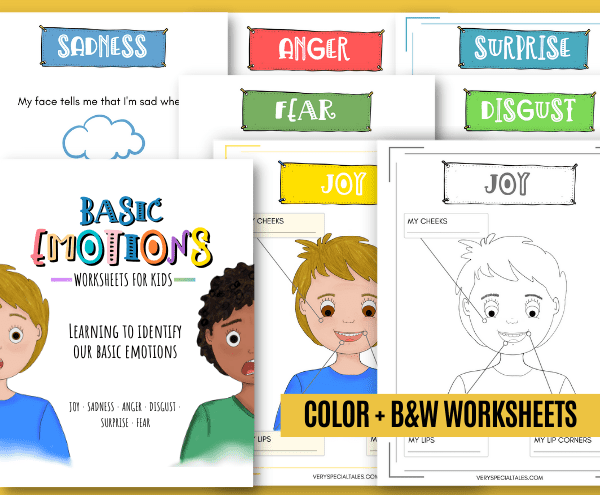
5 Comments
Briar Jones
Love this, such an informative post! I’m not a parent myself, but am a Nanny to three little ones- so this has given me lots of fun ideas. Thank you! ?✨
Ruth
Have you consider chess as one of the social skills activities? A child who realizes that one does not always win but also loses, learns humility and respect for other people. In addition to aiding analytical and developmental skills of the mind, playing chess is also a great excuse for socializing with other chess amateurs. Chess gives children the opportunity to make many new friends by participating in chess schools or local amateur tournaments. There are many advantages of playing chess from a young age. One thing your child will appreciate most is that playing chess is also great fun. With proper approach and proper tools, you can interest your kid in this marvelous game. One of the tool is to creat some interesting background stories, other tool is to practice specific movements and strategies, using special diagrams. In this case, I can recommend this book: chess-puzzles-for-kids-by-maksim-aksanov
Jan
Thank you for all your wonderful resources!
Bernadette
What a wonderful article for us mothers groping in the dark. You’re wonderful ! Many happy returns to your generosity in helping us. Feel blessed finding this post. ❤️
Neet
Great post! I absolutely love the idea of using games and activities to teach social skills to kids. As a teacher, I’ve found that incorporating fun and interactive activities into my lesson plans can help my students learn and retain information much better. I’m definitely going to try out some of these ideas with my students. Thanks for sharing!